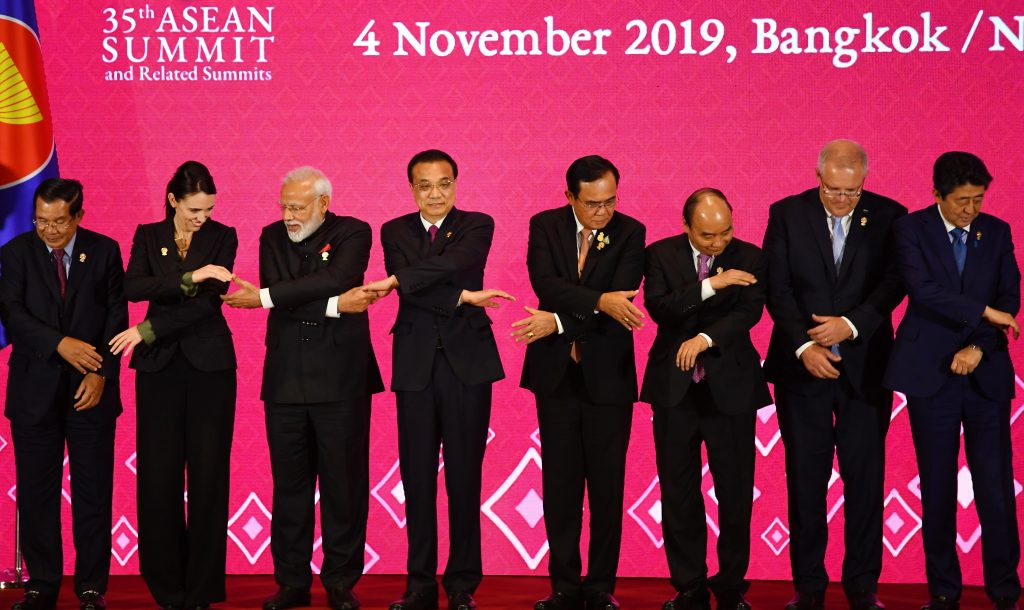
- ARAB NEWS
- 25 Apr 2024

BANGKOK: Leaders of 16 countries negotiating the Regional Comprehensive Economic Partnership, at a meeting in a Bangkok suburb Monday, gave up on concluding the talks by the end of the year, due to opposition from India, which remains concerned about a massive influx of products from China.
The participating countries will proceed with work toward signing the RCEP in 2020, the leaders, including Japanese Prime Minister Shinzo Abe, said in a joint statement adopted at the meeting. But it remains to be seen whether an agreement will be reached among all 16 countries, because India is threatening to withdraw from the negotiations.
The statement said that 15 countries excluding India have concluded "text-based negotiations for all 20 chapters," such as investment and rules including on the protection of intellectual properties, and "essentially all their market access issues," including tariff cuts and elimination.
Meanwhile, the statement noted that "India has significant outstanding issues, which remain unresolved," adding: "All RCEP participating countries will work together to resolve these outstanding issues in a mutually satisfactory way. India's final decision will depend on satisfactory resolution of these issues."
India has yet to finish tariff cut and elimination negotiations with China and is also continuing talks with other countries out of concern that Chinese products may flow into the Indian market via these countries.
A high-ranking Indian Foreign Ministry official said at a press conference after the RCEP summit that not joining the RCEP is the right decision for the South Asian country at the moment, adding that India has informed the 15 other countries that it will not take part in the free trade pact.
Some countries, including China, are calling for concluding the RCEP negotiations without India.
Still, Japanese Deputy Chief Cabinet Secretary Akihiro Nishimura told a press conference, "We have a shared goal of aiming to have the RCEP signed by all 16 countries."
The RCEP negotiations kicked off in 2013. At the summit in November 2018, the participating countries expressed their determination to conclude the negotiations this year, pushing back the schedule by one year.
Since then, the talks have made substantial progress, partly because China became positive on wrapping up the negotiations amid its escalating trade friction with the United States.
But India and the 15 other countries were unable to find a middle ground at a ministerial meeting on Friday and informal discussions on Sunday.
The 16-nation RCEP would create an economic bloc accounting for about half of the world population, and some 30 pct of global trade value and gross domestic product.
The participating countries other than Japan, China and India are South Korea, Australia, New Zealand and the 10 members of the Association of Southeast Asian Nations--Brunei, Cambodia, Indonesia, Laos, Malaysia, Myanmar, the Philippines, Singapore, Thailand, Vietnam.
For Japan, the RCEP would be its first trade pact with China and South Korea.
JIJI Press